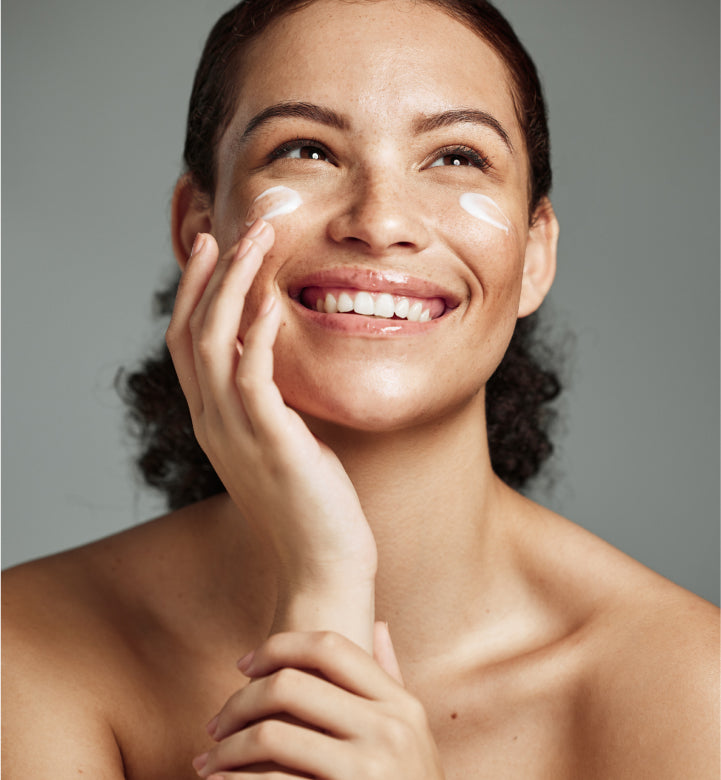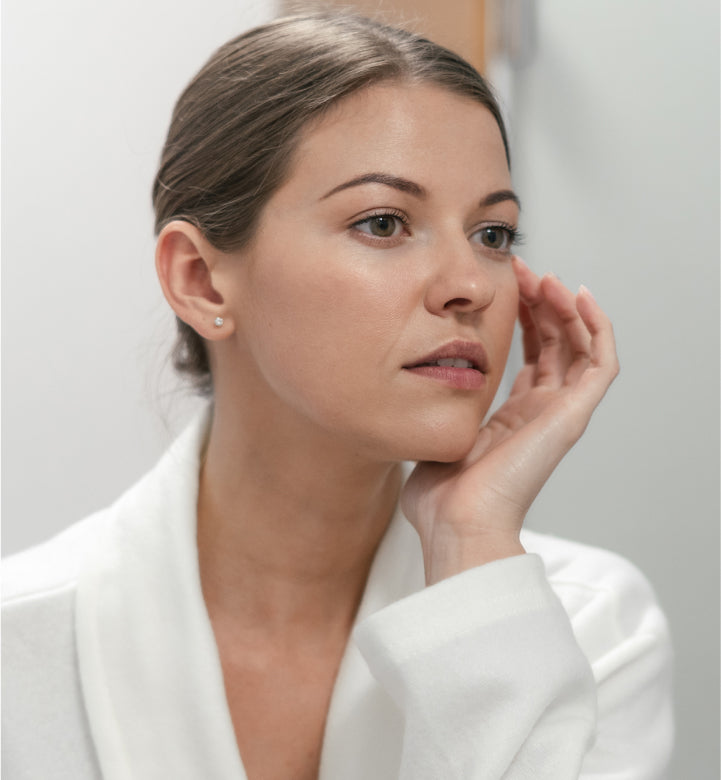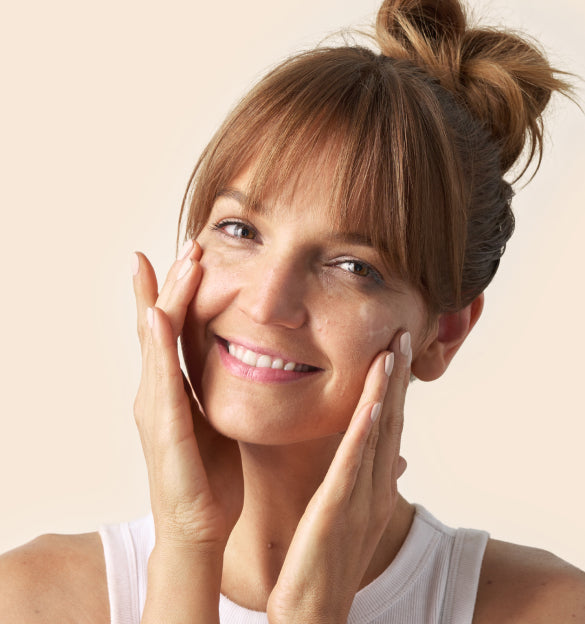Stress & Skin: How to Treat with Self-Care
Stress & Skin: How to Treat with Self-Care


Keep these good vibes going
Keep these good vibes going
Whether the changing of the seasons brings you a change in schedule or just a change in weather, keeping up a routine is essential. Adapting to meet the needs of your lifestyle changes is important! But it's just as important to have a routine to keep you grounded.
When it comes to your skin care routine, you should keep up the beloved summer skin care habits of staying hydrated and using sunscreen daily. But you should also be attentive to how change in your life, and the stress it may cause, can impact your health and dim your summer glow.
Let's get into the nitty-gritty so you can feel good inside and out!

Stress: healthy skin's nemesis
Stress: healthy skin's nemesis
Skin is the largest organ, and often acts a bit like a frenemy by reflecting what is going on inside our body on the outside. Being stressed is one thing, but letting everyone know you're stressed via a pimple or discoloration? Very much a bestie faux pas.
Your body makes stress visibly known through slower healing of wounds and inflammation-induced flare-ups of conditions like psoriasis and eczema. Your glands also produce more oil when under stress, which can cause acne to worsen and make you feel less than selfie-ready.
In addition to these short term effects, stress hormones break down collagen and elastin, which interferes with your skin's healing process. This can speed up aging and make fine lines and wrinkles more visible earlier on. (All the more reason to stop stressing!) The top layer of skin—the epidermal barrier—locks in moisture, protects from harmful microbes, and is essential for juicy, healthy skin. Psychological stress can impact the health of the epidermal barrier and prolong its repairs, according to clinical studies in healthy people. When disrupted, it can lead to irritated skin, chronic skin conditions, or wounds. Psychosocial stress can worsen these conditions, as found in small observational studies. This is stress related to social status, social situations, and our sense of acceptance—like when you feel a little out of the loop in group chats.



Body and mind syncing over stress
Body and mind syncing over stress
Not to further rain on your parade (we promise sunny days are in sight), but stress doesn't impact just one organ. Over time, chronic stress could wreak havoc on your overall health. It can weaken your immune system, cause inflammation in the body and make you more prone to health issues like heart disease, type 2 diabetes, weight gain, and more.
Dealing with these issues can be hard, and the ways stress impacts brain health can make life even harder. Stress can cause imbalances in the brain that can affect decision making, anxiety and mood.
Poor choices made in reaction to stress, like binging TV or eating too much junk food, can contribute to related health issues. Without a healthy routine or stress-relieving activities, you could get caught in a cycle of stress.
That is why practicing stress-alleviating activities is important to help soothe your mind and lower cortisol, the stress hormone. Balanced, relaxing activities may help lower your blood pressure, improve your brain health, and help you feel happier overall. Explore which healthy activities calm your nerves. Try cooking, going for a walk, working on a craft, or piecing together a puzzle.

Keep calm and (self) care on
Keep calm and (self) care on
In the 21st century, prioritizing self-care can sometimes feel inaccessible and impersonal. Highly popularized self-care activities aren't one-size-fits-all. Demands at work, lack of gym access, difficult classes, or limited space can make prioritizing “me time” hard.
Incorporate self-care practices slowly and mindfully by embracing soothing activities that are also sustainable for your lifestyle. Self-care can be elaborate, one-off treats when you need a boost. But it's important to incorporate everyday and weekly self-care rituals to keep yourself centered.
If you need help getting started, try this approach:
- Evaluate your current situation
- Identify your self-care needs
- Write down habits that can support those needs
- Fit them into your schedule
- Jot down a list of besties to lean on
- Remove harmful habits
Try to think about needs beyond physical and mental, the typical areas self-care products target. In addition to needs in those areas, also think about self-care acts that are:
- Social: like getting lunch with a supportive friend
- Professional: like tooting your own horn about a new job you got, a project you finished, or an exciting class you're starting
- Psychological/Intellectual: like checking out an audiobook of a topic you've been wanting to learn about
- Financial: like setting up savings goals for yourself along with small rewards when you reach benchmarks
When brainstorming self-care practices, start small and build up over time. It might surprise you the impact daily 3-10 minute breaks could have.



De-stressing the skin barrier
De-stressing the skin barrier
To figure out if your skin barrier is stressed out, watch for signs like redness, severe dryness, increased breakouts, and stinging or burning sensations when applying products.
Give your skin a break! Bring your routine back to the basics and eliminate products with excess fragrance, colors, or dyes. Let your skin breathe, foundation-free, for at least 6-8 hours a day.
Prioritize skin care products that hydrate and soothe skin, like a moisturizer with hyaluronic acid or an at-home face mask with natural ingredients.




